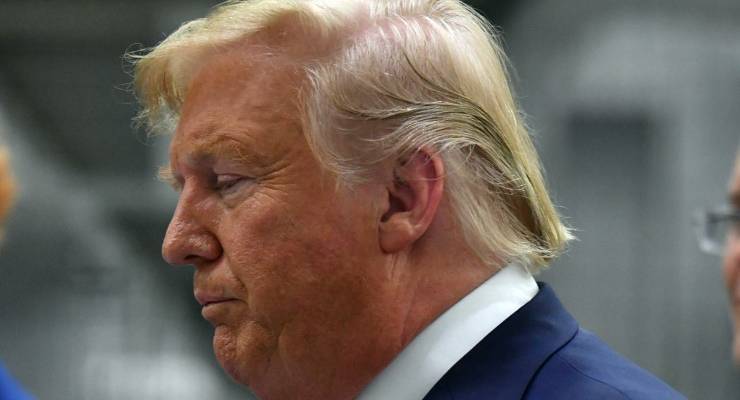
US federal debt clicked over US$25.95 trillion last week, $6 trillion higher than when Donald Trump was inaugurated. This sits atop a mountain of evidence confirming Team Trump’s economic management has been the worst since the Great Depression.
The trajectory towards “worst ever” was set well before the COVID-19 virus
devastated the world. Deterioration was evident soon after Trump’s tax cuts took effect in early 2018. This has been masked by an extraordinarily successful campaign of mendacious tweets claiming the economy is “best ever” and “world’s greatest”. This is one mask the POTUS uses effectively.
Record debt added
The $6 trillion added to the debt comes to US$1774 billion a year. That is more than double the rate of Barack Obama’s second term after the global financial crisis, nearly four times that of George W Bush’s first term, and more than six times Bill Clinton’s first term debt rate.
There was no need for further borrowings. All well-managed economies are steadily reducing federal debt.

Record deficits
The debt is blowing out because government spending is outpacing revenue. For the first eight months of this financial year revenue was just US$2019 billion, compared with US$2302 billion for the same period last year. That’s tracking at an unsustainable 51.8% of outlays — just over half.
This is on track for the worst budget deficit in US history, outside world wars, and the deepest in the developed world today.
Record jobless
In March the US unemployment rate soared from 4.4% to a staggering 14.7%. In April it contracted slightly to 13.3% (but with reports this could be due to a counting error).
This is the highest US jobless rate since the Great Depression and the worst three-month blowout in any developed country since records have been kept. We checked.
Worst wages outcomes
The US has the most dismal wage outcomes for workers of all wealthy nations.

Of the 33 developed countries listed at Trading Economics, the top 25 for real wages growth — after inflation — are European democracies and Canada. Seven countries, including Australia, recorded annual wage declines. Of these, the US was a distant last with a contraction of 8.8%.
Negative economic growth
Quarterly growth of US gross domestic product in the March quarter was -4.8%, the second-worst outcome since the 1981 global recession. The worst was in 2008 during the GFC. America’s annual GDP growth rate is now 0.23%, the lowest since 2009.
Collapsing exports
Since Trump started and then comprehensively lost the trade wars with China and other trading partners, the US has experienced its worst exports slump since records began in 1950. Exports in April were just $151.3 billion, down a thumping $58 billion from the previous April and below every April level for the past 10 years.
Export levels in well-managed economies bounce around from month to month, but the trajectory is steadily upwards. The highest month ever for US exports, however, was just over two years ago, May 2018. No other developed country has fared as poorly as this. Ireland and New Zealand, for example, had their highest month ever in March, despite the pandemic.
Retail trade retreating
Retail sales collapsed 21.6% in April over the same month a year earlier, the greatest decline in US history. This was much deeper than during the GFC when the worst annual fall was 11.5% in March 2009. Although the pandemic has affected sales recently, the downturn began in mid 2018.
All the wrong calls
Other areas impaired significantly since Trump’s first budget include inflation, productivity, the housing index and homelessness. Areas which have deteriorated disastrously are worker underutilisation, the youth jobless rate, interest rates, manufacturing, industrial production, mining production, vehicle sales and the trade deficit.
No area of the economy has improved.
The coronavirus did not cause these outcomes. It has worsened some areas but America’s shift in rankings towards the tail of the OECD countries on fiscal variables started with Trump’s first budget. It has been exacerbated by tax cuts for the rich, wasteful spending and the unilateral tariffs.
These are the decisions which must be reversed for the economy to get back on track.








Crikey is committed to hosting lively discussions. Help us keep the conversation useful, interesting and welcoming. We aim to publish comments quickly in the interest of promoting robust conversation, but we’re a small team and we deploy filters to protect against legal risk. Occasionally your comment may be held up while we review, but we’re working as fast as we can to keep the conversation rolling.
The Crikey comment section is members-only content. Please subscribe to leave a comment.
The Crikey comment section is members-only content. Please login to leave a comment.